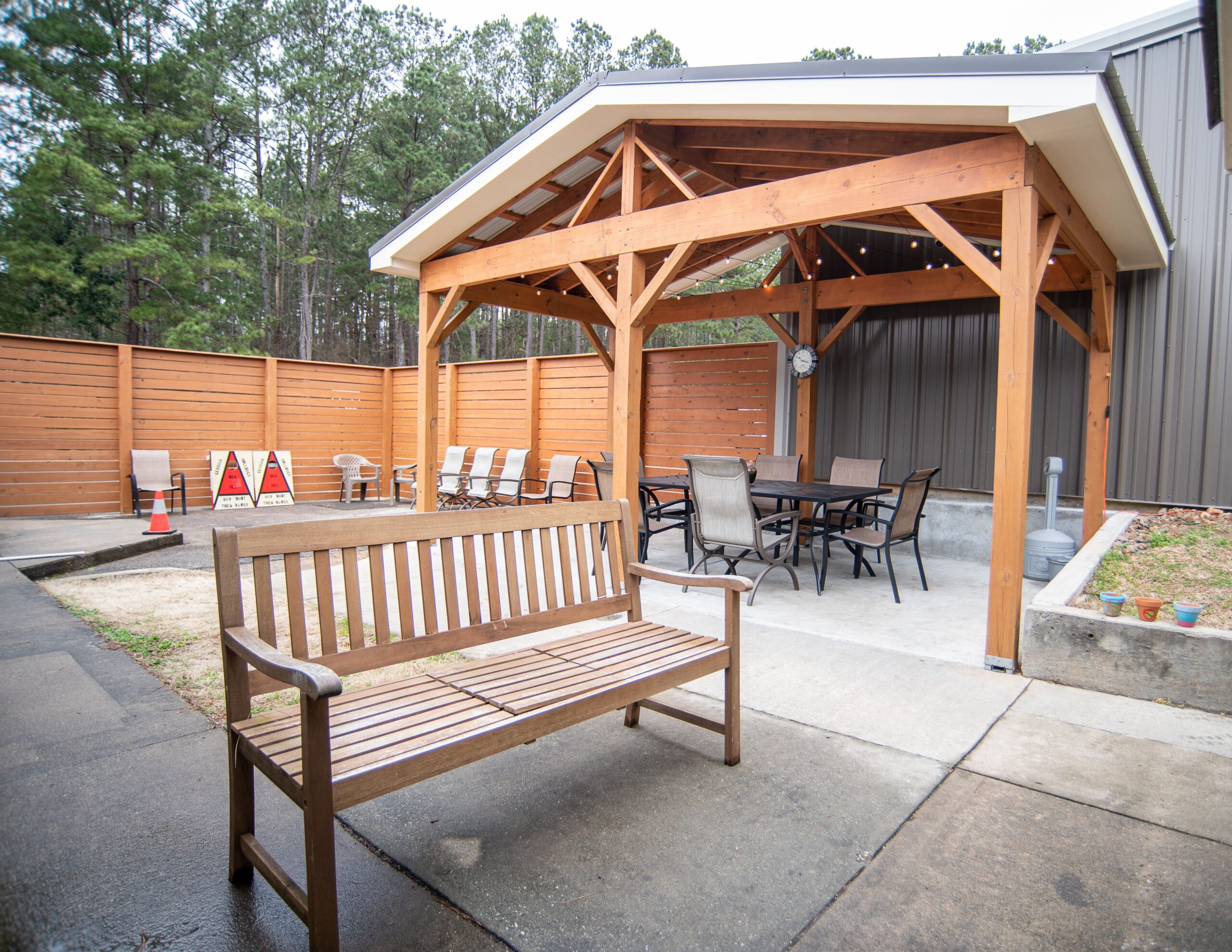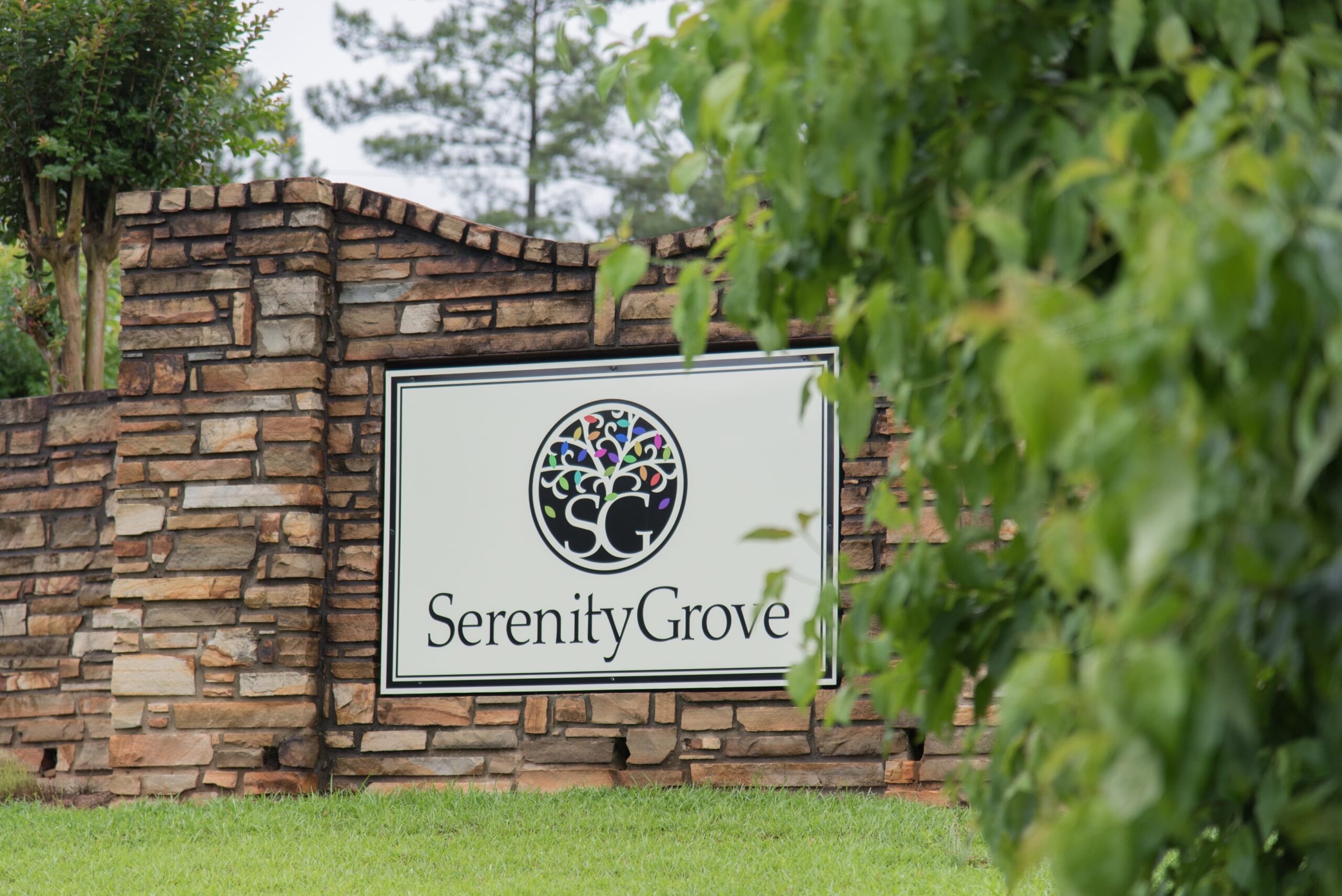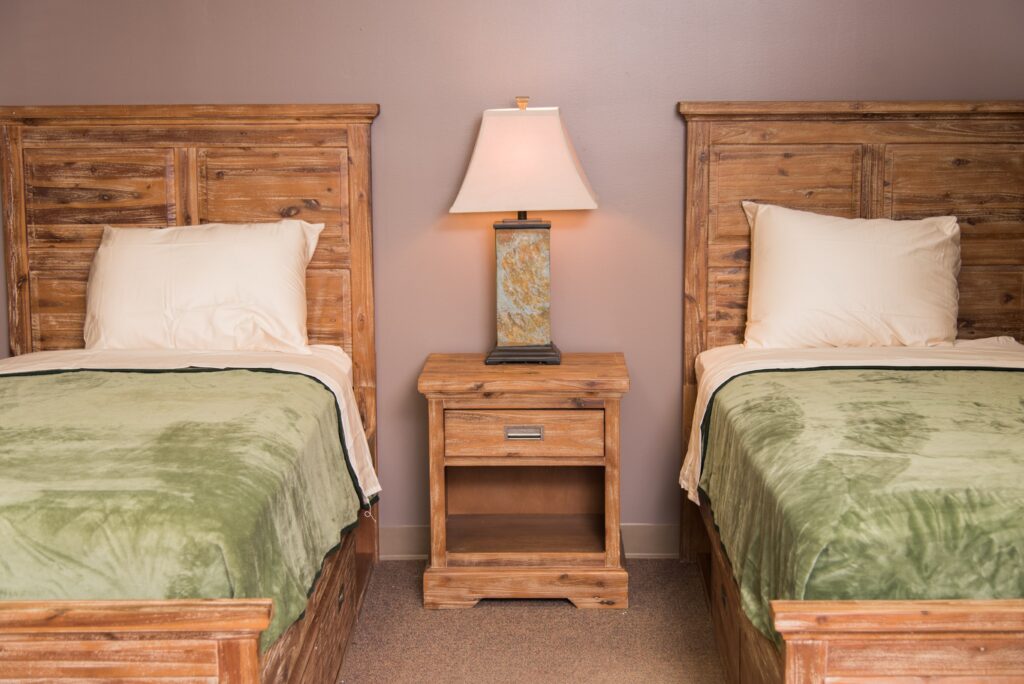Around the United States, people from all backgrounds live with addiction. Parents, working professionals, students, and more live lives dramatically impacted by substance use disorders. Many people avoid seeking professional addiction recovery support because of guilt, shame, or difficulty understanding their options. Luckily, Atlanta is home to first-class residential treatment centers in Georgia.
If you or a loved one needs help overcoming a substance use or mental health disorder, Serenity Grove can be the first step to recovery. Our family-run clinic close to the university campus is ready to help you. Call us now at 844.904.3485 to learn about our residential treatment and outpatient treatment programs or verify your insurance now.
What Is a Typical Day in Residential Treatment Like?
During a typical day of our residential treatment program in Georgia, you and your peers will follow a daily schedule with a mix of therapeutic sessions, life-skills building, and recreational activities. Following a schedule will help you establish a routine so that you know what to expect. While each day could vary with different topics and activities, you’ll wake up, eat, attend sessions, and go to sleep at the same times each day.
The day begins with a healthy breakfast and then you’ll get into your sessions. Each session will last about one hour until your lunch break. After that, you’ll continue sessions until you get some free time to relax before dinner.
After dinner, you might have some additional sessions. You might also have peer support sessions, such as 12-step recovery groups. After that, you can relax or participate in recreational activities until bedtime.
In addition, you’ll also be expected to help with chores throughout your stay. This encourages responsibility as well as team-building with the other residents in your program.
What Are Residential Treatment Programs?
Residential treatment programs are also called inpatient rehab. These programs house clients for their initial detox and early recovery. Most programs house residents for 30, 60, or 90 days at a time, depending on an individual’s needs.
While each residential treatment program differs, most provide a blend of evidence-based treatment plus complementary and integrative therapeutic services including:
Evidence-Based Treatments
- Individual Psychotherapy: During individual therapy, you’ll get one-on-one attention from a trained, masters-level therapist. These focused sessions give you the opportunity to discuss unique issues related to your recovery from addiction and co-occurring mental health disorders.
- Trauma Treatment: Underlying trauma is often a root cause of substance use and mental health disorders. During trauma treatment, you will work through—and heal from—the traumatic experiences at the root of your behavioral health conditions.
- Medication-Assisted Treatment: Alcohol and opioid use disorders can be challenging to overcome. However, the FDA-approved medications used in medication-assisted treatment (MAT) reduce the risk of relapse and accidental overdose during early recovery.
- Dual Diagnosis Treatment: Substance use and mental health disorders often co-occur due to similar risk factors and causes. Treating both disorders at the same time during dual-diagnosis treatment provides the best outcomes for long-term recovery.
- Cognitive-Behavioral Therapy (CBT): During CBT, your therapist will help you identify problematic thought patterns and beliefs that influence unhealthy behaviors. CBT is one of the most common types of therapy, and many other therapeutic modalities are based on it.
- Dialectical Behavioral Therapy (DBT): Originally developed as a type of CBT to treat borderline personality disorder (BPD), DBT also treats addiction and other mental health disorders. During DBT, you’ll build skills in four main areas: (1) mindfulness, (2) distress tolerance, (3) interpersonal effectiveness, and (4) emotional regulation.
- Group Therapy: During group therapy, you and your peers will discuss various recovery topics provided by a trained therapist. That way, you can learn from one another while still being under the guidance of a therapist as the group facilitator.
- Family Counseling: Addiction and mental health disorders impact the entire family. Therefore, the whole family must engage in the recovery process together. Our family therapy program offers support for you and your family members to repair relationships while you’re in treatment.
Complementary and Integrative Treatment Services
- Meditative Therapy: By incorporating aspects of meditation, meditative therapy can help you improve your mental, emotional, physical, and spiritual well-being during recovery. Benefits of meditative therapy include stress reduction, improved sleep, and reduced negative emotions.
- Yoga Therapy: The practice of yoga has been long known to help clients reduce stress and enhance their mood. By incorporating yoga therapy into your treatment program, you can gain these benefits as well.
- Anger Management: Anger is a powerful emotion that can cause many issues when it is unmanaged. Learning how to manage anger can help you with your relationships, physical health, and emotional well-being.
- Life Skills: Oftentimes, people with an addiction or a mental health disorder struggle with critical aspects of daily life. This includes things like money management, creating a healthy home environment, stress reduction, nutrition, decision-making, and vocational training.

How Can Residential Treatment Help Me?
Our residential treatment centers in Georgia provide clients with the opportunity to disconnect from stress at home. For many people, spending time in a program away from home can help them reestablish priorities and gain perspective on harmful relationships and behaviors. Residential programs focus on building solidarity founded on sobriety. They also provide clients with tools for building healthy structures in their daily lives.
For many, the added benefit of dual diagnosis treatment can uncover undiagnosed mental health disorders. This proves important because about 21 million adults in the U.S. struggle with a dual diagnosis. This is the presence of both an addiction and a mental illness.
For this reason, many treatment programs provide care for dual diagnosis. The consistent care and attention of residential rehab can help many people transition into sobriety feeling supported by nurses, therapists, and community members.
Is a Residential Treatment Program Right For You?
Residential treatment programs are a great choice for addiction recovery support. An inpatient program might be right for you if:
- You lack a supportive, sober community or home life
- You have a dual diagnosis
- You can leave home for at least 30 days
- You need space away from family, community, and home
- You’re interested in medically-assisted detox
- You’re ready to disconnect from stress
- You need nutritional support
- You can benefit from frequent nursing care
Residential programs are perfect for those who lack support systems for recovery. You’ll have round-the-clock support and care from professionals and your peers.
Our Residential Treatment Center Near Atlanta
Residential rehab can greatly reduce the risk of relapse and provide people with tools for lifelong success. With continuous health monitoring, inpatient clients know their health is in good hands. With this in mind, we created our residential treatment centers in Georgia.
Located near the University of Georgia campus, Serenity Grove Recovery provides comprehensive treatment for professionals, students, and families right here in Atlanta.
A family-run facility, Serenity Grove Recovery treats addiction and co-occurring disorders with a multi-disciplinary approach. Our highly experienced therapists provide talk and holistic therapies that emphasize a person’s ability to heal. With our help, people can achieve lifelong recovery.

More: Tour Our Facility
How Long Does Residential Treatment Last?
How long a person needs to attend our residential treatment centers in Georgia depends on a few things. Someone with a severe, long-lasting addiction may require a longer amount of time in treatment than others. As well, how committed the person is to their program will factor in.
In general, a residential program works best if the person stays for 30 days or longer. Some people get the most out of staying 60-90 days. Outpatient programs usually work best when the person stays for 30-60 days.
What Should I Expect At A Residential Treatment Center?
Residential treatment programs offer multiple avenues to help people beat addictions to drugs and alcohol. Upon arrival, they will receive an assessment to determine the length and severity of their substance use disorder and if they have any co-occurring mental health disorders.
From there, you can start to work on creating a treatment plan. If necessary, the person can be prescribed medications to help ease withdrawal symptoms.
While some residential facilities have a clinical feel to them, many treatment centers strive for a more homelike feel. They include modern furnishings in a tasteful setting and include both inviting common areas and secluded private bedrooms.
How Much Does Residential Treatment Cost?
One of the first questions people want answers to relates to the cost of getting professional help. Each program is different and the cost will depend on things like what type of program the person attends and how long they are in it.
Additionally, if they have insurance and how much of it covers treatment will factor in. To find out the exact cost of treatment, the individual can contact their insurance company.
Alternatively, they can call a treatment center and get a free insurance verification to determine financial details.
Recommended: Paying for Rehab
What Happens Once Residential Treatment Is Over?
When someone completes their stay at a residential treatment center in Georgia, they typically transition to outpatient care. This can include the following levels of treatment:
- Outpatient Program: Outpatient rehab programs allow you to live at home or in a sober living program during treatment. This means that you don’t need to live within a treatment facility. Because of this, most clients aren’t ready for outpatient care until they complete residential treatment.
- Partial Hospitalization Program (PHP): A PHP program is the next step after leaving our residential treatment centers in Georgia. During PHP, you’ll spend most of the daytime hours in treatment for 5-6 days per week.
- Intensive Outpatient Program (IOP): After PHP, you can step down to an IOP program. Many IOP programs offer evening hours to provide you the flexibility you need to work, care for your family, or attend school while still getting a high level of care.
After all formal treatment concludes, a plan should be in place for aftercare. This can include continued individual or group therapies, support groups, or residing in sober living housing.
Begin Residential Treatment in Georgia Today
Have you reached the point where you can no longer pretend you don’t have a real problem with drugs or alcohol? Asking for help can feel scary, but we make it easy.
At Serenity Grove, we teach you to face your addiction and resolve issues that contribute to the need to abuse substances. We help you develop healthy coping skills that create the ability to avoid temptations to relapse. Our outpatient and residential treatment centers in Georgia help you hit the reset button on your life.
If you or a loved one are considering inpatient rehab near Atlanta, contact us at 844.904.3485 today.


